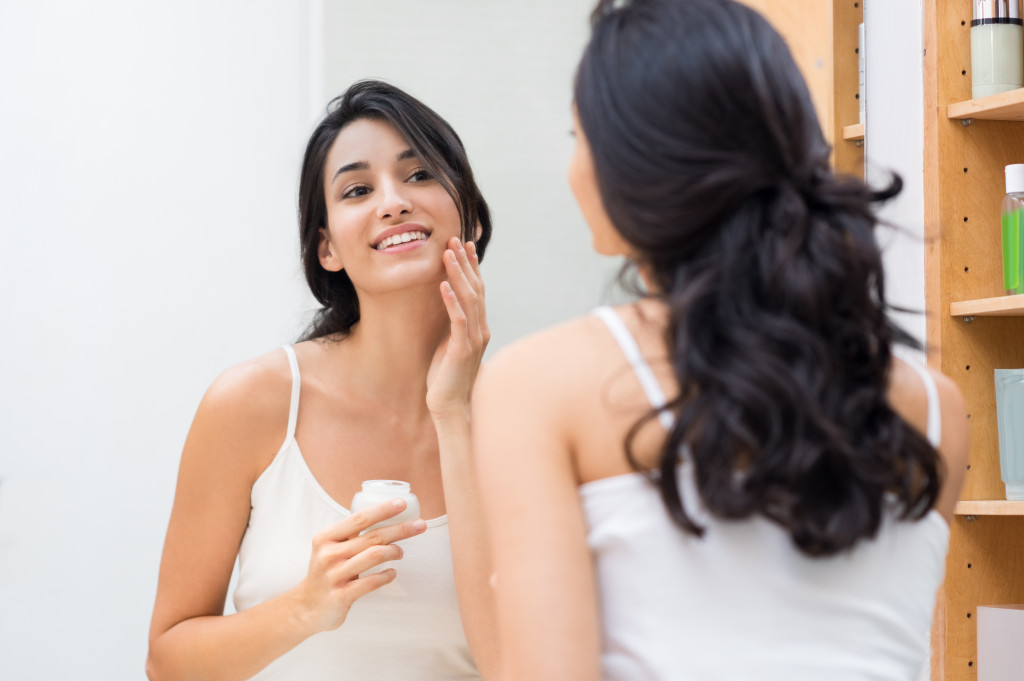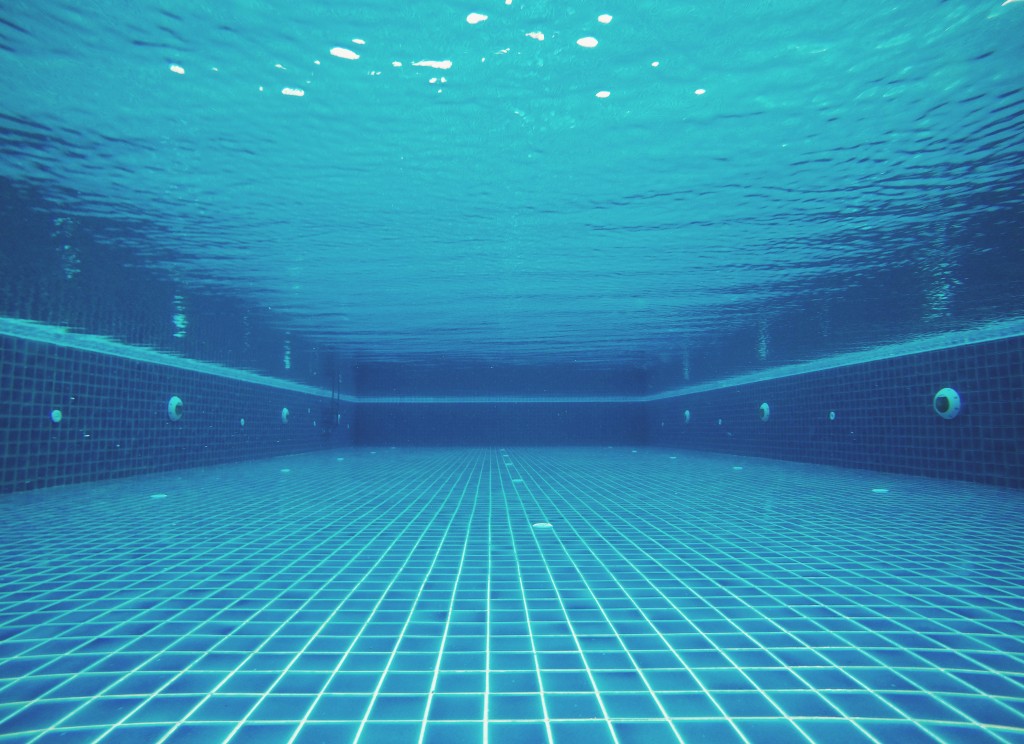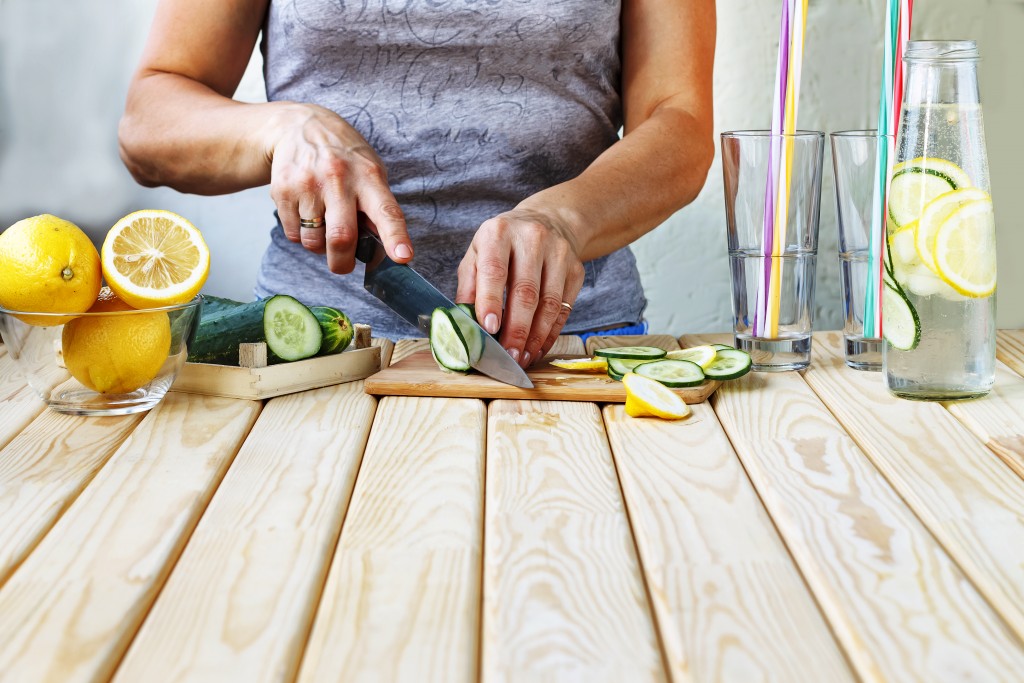Chlorine is used in swimming pools to kill bacteria and harmful pathogens present in the water. While it might help protect swimmers from water-borne illnesses and irritation, chlorine can also cause damage to your skin and hair, especially with prolonged exposure.
No one wants to spend the rest of the day with brittle hair and irritated skin. So before taking a dip into the pool, here’s what you can do to protect your skin and hair from chlorine and other contaminants that might be present:
1. Swim outdoors
Indoor pools are much more prone to the negative effects of chlorine than outdoor pools. Just ask any custom pool contractor. When chlorine binds with human waste in the water (e.g. urine, sweat, saliva), it can form chloramines, a chemical that can cause irritation in the skin, eyes, and respiratory tract when released as gas from the water. With nowhere to escape to in an enclosed space, chloramines are found in much higher concentrations in indoor pools, which poses an increased risk for irritation.
As much as possible, swim in an outdoor pool instead of an indoor pool. But if you have to swim indoors, choose a well-ventilated facility that might not have as many chloramines in the air.
2. Take pre and post-pool showers
Taking a shower before swimming forms a layer of water over your skin and hair, which helps reduce the amount of chlorine that you absorb. At the same time, the water also helps your skin and hair retain moisture, preventing it from drying out especially when you go sunbathing as well. And of course, showering before you go into the pool removes excess dirt, sweat, and other bodily fluids that you might have on your body.
Post-swimming showers are also essential. Taking a shower after you step out of the pool removes as much chlorine as possible from your body, while also helping rehydrate your skin and hair after losing moisture in the pool.
3. Use conditioner
Using conditioner creates a protective barrier on your hair strands to protect it from chlorine and dryness. Before you go swimming, deep condition your hair or apply moisturizing oils such as coconut oil or olive oil. If you have skin sensitivities, applying conditioner to your skin can also help reduce the harmful effects of chlorine.
4. Wear a swimming cap
Wearing a swim cap is the best way to protect your hair from chlorine, especially if your hair is already brittle and damaged in the first place. If you want to provide 100% protection to your hair while swimming, wear a swim cap after taking your pre-pool shower. Alternatively, use a hair tie to pin your hair back to reduce its exposure to chlorine.
5. Apply moisturizer to your skin

Moisturizing before and after swimming helps protect your skin from irritants in the water while keeping it hydrated as much as possible, so don’t go to the pool without it. And if you are swimming under the sun, don’t forget to use a moisturizer with sun protection.
6. Prevent hair breakage
After you get out of the pool and take a shower, your hair might still be a little brittle and prone to breakage. That said, avoid causing even more damage to your hair by using a towel to dry off instead of a hairdryer. In addition, use a wide-tooth comb to get rid of tangles. Toothcombs can easily break your hair due to the post-swim brittleness.
7. Wash in warm and cold water
Instead of hot water that can dry out your skin and hair, use warm water for showering. Warm water helps open up pores, facilitating the absorption of moisture and natural oils in your skin and scalp. After showering with warm water, rinse with cold water to close your pores and lock moisture in.
8. Give your hair a break
Whether you swim for one day or every day for a whole week, it’s best to give your hair a break from heat styling and give it ample time to recover.
9. Wear pool sandals
The damp and warm environment around a pool attracts bacteria, viruses, and microorganisms that cause foot conditions such as athlete’s foot and skin warts. Protect your feet by always wearing water-proof sandals whenever you’re not in the pool, and avoid walking inside the house with those sandals to prevent tracking dirty water on the floors.
Swimming in the pool is all fun and games until the harmful chemicals in the pool wreak havoc in your hair and skin. But with proper preparation, you can keep your hair and skin healthy and enjoy your time at the pool without any worries.
Do you know other ways to prevent swimming pool woes? Comment them down below. Thanks for reading!




